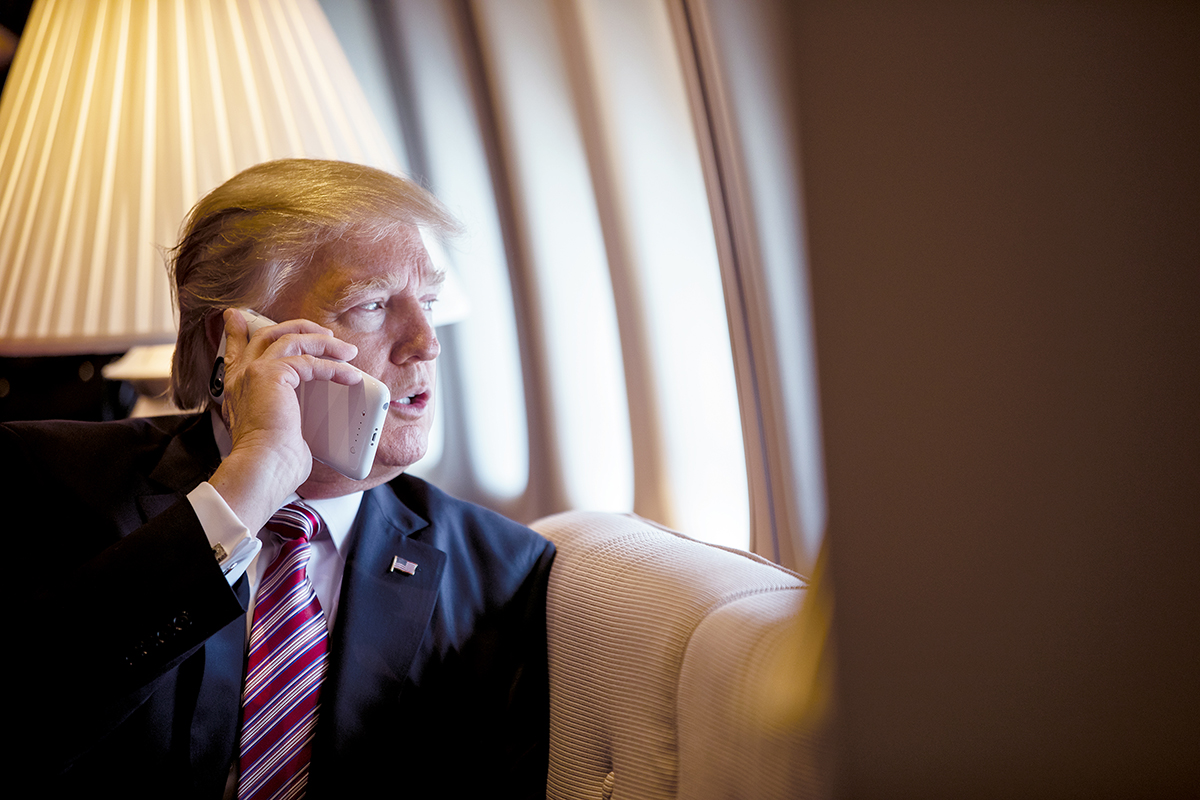Why Trump Can’t Strip NBC’s Broadcast License

Credit to Author: Sam Gustin| Date: Wed, 11 Oct 2017 20:16:43 +0000
President Trump’s bizarre suggestion that NBC’s “license” be “challenged” over a news report he didn’t like reflects a fundamental ignorance about how federal broadcast licensing works, not to mention a dangerous disregard for free speech, according to policy experts.
Trump’s latest attack on the news media appeared to be in response to a NBC News report describing how the president called for a dramatic increase in US nuclear stockpiles during a July meeting. It was after that meeting, NBC reported, that Secretary of State Rex Tillerson called Trump a “fucking moron.”
On Wednesday morning, Trump once again branded NBC News as “fake news” and asked in a tweet when it might be appropriate to “challenge” NBC’s “license.”
Harold Feld, senior vice president at DC-based digital rights group Public Knowledge,
said that any attempt by a president to censor news reporting by seeking to yank a station’s license would run afoul of the Communications Act and the First Amendment.
“The whole system of FCC licensing is designed to prevent a president from doing exactly what Trump suggested,” Feld told Motherboard. “Congress structured the FCC licensing process specifically to prevent the president from threatening broadcasters or censoring their content. And happily for the people of the United States, that system works.”
Feld also pointed out that Trump’s rhetorical question doesn’t make much sense because the FCC does not issue licenses to news networks, but rather to individual radio and television stations. It’s true that NBC’s parent company, Comcast, owns and operates local NBC stations that hold FCC licenses, but the feds are prohibited from using their regulatory power to crack down on speech, with very few exceptions, such as obscenity, which the agency can address in response to complaints.
“We want to government to act as a referee, and to promote media diversity though things like media ownership rules and the allocation of radio spectrum,” said Feld. “But we don’t want the FCC to regulate the content of the media.”
There are grounds for the FCC to revoke a station’s license, but the standard for doing so is very high. For example, repeated violations of FCC rules or the commission of serious crimes might be grounds for losing a license. Feld said that it’s theoretically possible to challenge a license-holder for deliberately misinforming viewers in violation of the FCC’s public interest mandate, but “as a practical matter it’s impossible because the standard is ridiculously high.”
“You basically have to kill someone or be a child sex predator to lose your broadcast license.”
Feld cited the case of a California radio station that had its license terminated by the FCC after a women died of water intoxication during a “Hold Your Wee for a Wii” contest in which the station offered a Nintendo Wii video game system to the winner. There have also been a handful of cases in which the FCC has cited its “character policy” to strip broadcast licenses from individuals convicted of child molestation.
“That’s how high the standard is,” said Feld. “You basically have to kill someone or be a child sex predator to lose your broadcast license.”
Trump’s ignorance about tech and telecom policy issues has been well-documented, but his incessant attacks on news organizations and apparent contempt for free speech is even more alarming. Trump has repeatedly attacked individual reporters and even branded journalists as “the enemy of the American people.” Now, Trump is suggesting that the government punish news organizations for reports he doesn’t like.
“This madcap threat, if pursued, would be a blatant and unacceptable intervention in the decisions of an independent agency,” former FCC commissioner Michael Copps, who serves as a special advisor to public interest group Common Cause, said in a statement. “The law does not countenance such interference. President Trump might be happier as emperor, but I think the American people would strip him of his clothes on this issue.”
Shortly after Trump issued his tweet, Sen. Ed Markey, the Massachusetts Democrat, sent a letter to FCC chief Ajit Pai urging him to “withstand any urges from President Trump to harm the news media and infringe upon the First Amendment.”
“It is inappropriate for the President to propose challenging broadcasters’ licenses because he disagrees with their coverage,” Markey wrote. “Any insinuation that elected officials could use the levers of government to control or censor the news media would represent a startling degradation of the freedom of press.”
Markey called on Pai to “publicly refuse to challenge the license of any broadcaster because the President dislikes its coverage,” and provide information about “any correspondence or communications from the White House or other members of the Trump administration that have encouraged you to take action against a broadcaster.”
Markey asked Pai to respond by November 1. A FCC spokesperson did not immediately respond to a request for comment about Trump’s tweet or Markey’s letter.